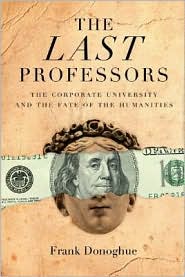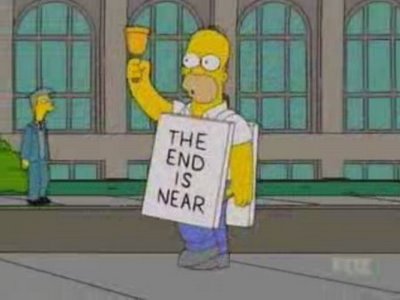Stanley Fish’s column in the New York Times yesterday focused on the astute scholarship of Dr. Frank Donoghue, Associate Professor at The Ohio State University, and his most recent book, The Last Professors: The Corporate University and the Fate of the Humanities. 
The topic in the cross-hairs is the fate of the modern university and the axis that the conversation hinges on is one of economic and social utility versus a special sort of “inutility.” Fish wants us to see the university as most valuable when it doesn’t intervene “in the social and political crises of the moment” and argues here as well as in his book, Save the World on Your Own Time, that the university should not view itself as instrumental, that is, “valued for its contribution to something more important than itself.” I’m not so sure that Donoghue would get behind this; his critical project is more about clearly articulating the problem than it is about offering solutions. In fact, if you were to ask him, as I once did, he will probably offer you the same chuckle that I got. He said, “Solve it?! You can’t solve it. It would be like trying to ‘solve’ capitalism.”
What might be interesting for readers of this blog–those interested in rhetoric, composition, literacy, and other really cool schtuff–is that our discipline, I would argue, is often at the center of these issues. Whether it’s the idealized rhetoric of the liberal arts institution that universities still troll out in their television spots or the economics of the required first-year writing course and its attendant issues of tiered labor and corporate management theories, the stuff many of us do every day (and how we defend it) is inextricably bound to the issues that Donoghue explores. I urge you all to read this book and arm yourself (yes, I am quite conscious of the militarized rhetoric) with a strong historical knowledge of how we arrived at this point. The end may be nigh, but that means a beginning is near as well . . .


Marc Bousquet has a nice follow up to Fish’s exposition on Donoghue’s Last Professors. He points out the Fish completely misses the repeated claim that it’s precisely tenure-stream and faculty-managing types like himself that Donoghue holds accountable.
http://chronicle.com/review/brainstorm/article/?id=1118&utm_source=at&utm_medium=en